When I took a Road Runners Club of America course to become a coach, all students received a copy of Daniels’ Running Formula, 3rd Editionby legendary coach Jack Daniels PhD. The man with the name that the mainstream associates with whiskey has coached dozens of elite runners and Olympians, including Joan Benoit Samuelson and Oakland’s own Magdalena Boulet. His principles are woven into the RRCA coaching curriculum, and his book is an indispensable reference guide for very specific and effective training.
Last week, Magdalena—fresh off her victory at the North Face Endurance Challenge 50-mile Championship—invited a small group of athletes from the region to the GU Energy headquarters in Berkeley to hear her coach give an overview of his training methods. I was fortunate to attend and want to share some of his guiding principles below.
I brought my book for him to autograph, and when the 81-year-old coach saw it in my hands, he said, “I told my publisher I would not write a third edition unless they agreed to put a woman on the cover.” Right on!
Jack started with a slide that listed 16 nuggets of wisdom that every coach and runner should ponder:
Every point on the list is worth considering, but two in particular resonated with me: “Rest is part of, not avoiding, training”—underscoring the essential role rest should play in training; and “Know the purpose of every workout.”
“If you don’t know why you’re doing a workout, I’d suggest you go home and watch TV instead,” he said.
So if you ever feel you have to get out the door and log miles just to look good on Strava, ask yourself, “What really is the purpose of this run?” Is it speed training to get faster? Hills for strength? Or an easy conversational pace to strengthen your heart, recover between hard workouts, relieve stress or enjoy the company of a running friend?
He also reviewed his seven principles of training:
You need to stress—that is, challenge—your body to improve, and then your body will adapt to that stress and your progress will plateau. Adjusting that level of stress by fine-tuning the frequency, intensity and type of workout is one of the key jobs of a coach. Specificity, the second bedrock principle, refers to the importance of training specifically for your goal. If you want to race 5Ks on the road, then tailor your training to that—and that kind of training will look very different from training for an ultramarathon on a technical trail.
Some bad news: The fitter you get, the harder you’ll have to work to achieve further progress, and the greater your potential for setbacks will be. The upside to this rule is that when you’re coming back from time off, you’ll achieve progress with less intensity—so if you’re coming back from injury, don’t feel you have to jump right back into high-level training, which heightens risk for re-injury. “So many runners say, ‘I missed two weeks of training because of this injury, so I’ve gotta work extra hard when I come back to make up for what I lost,'” he said. “No, you don’t, because you’re not as fit as you were before, so you don’t have to train as hard to improve.”
Daniels’ formula can get a little complicated, since he precisely measures oxygen consumption, heart rate and other factors, then combines those factors with velocity to determine how a runner should train week after week. This slide gives a glimpse at the complexity:
But it’s actually not that complicated. For an in-depth understanding of his seven principles and his formula for training at specific, effective training intensities, get his bookor hire a coach (speaking of which, I’m taking clients!).
Always keep in mind Daniels’ no-brainer, easier-said-than-done rule: “Do the least amount of work you can do to get the maximum benefit.” In other words, don’t run aimlessly or excessively, making yourself more prone to burnout and injury. Think and plan your running so you get the most benefit and optimal training with the least effort.
He also talked about “five key ingredients to success”:
1. Inherent ability—affected by your unique anatomical, biomechanical, physiological and psychological profile;
2. Motivation, which has to be intrinsic—the desire has to come from you;
3. Opportunity—external factors like training facilities, opportunity to travel, the weather, the competition;
4. Direction—from your program, teacher or coach (he pointed out this is the one ingredient that has the potential to be negative, since a bad coach or teacher is worse than none at all);
5. And finally, luck—the factors out of your control. Daniels also calls this “focusing on the task at hand.” You can’t control whether a faster competitor shows up to a race, for example, or what the weather will be—that’s just good or bad luck. For that reason, you need to focus on the task at hand: running the best you can given the circumstances.
At the end of his lecture, I asked about ingredient #2: Motivation. If motivation must be intrinsic, then what role can a coach play to motivate? He said the desire has to come from the individual, but a coach can help a burned-out or discouraged runner rekindle that desire. How?
He tells a runner who’s unmotivated because of a lack of confidence or burnout, “You have not lost your ability—it’s still within you. You still have your God-given talents. All we have to do is figure out how to bring them out, and it’s probably number one by not overtraining. Let’s see what you can do with some comfortable training.”
Look no further than Magdalena Boulet for proof of his training methods’ effectiveness. Magda has gone from Olympic marathoner to champion ultrarunner during the 12-plus years he has coached her. “He’s really shown me what a journey I could have as an athlete,” she said.
Many thanks to Magda and GU for hosting this talk. If you’re curious to hear about her North Face Endurance Challenge 50-mile Championship win, check out this video of my finish line interview with her for UltraSportsLive.TV:

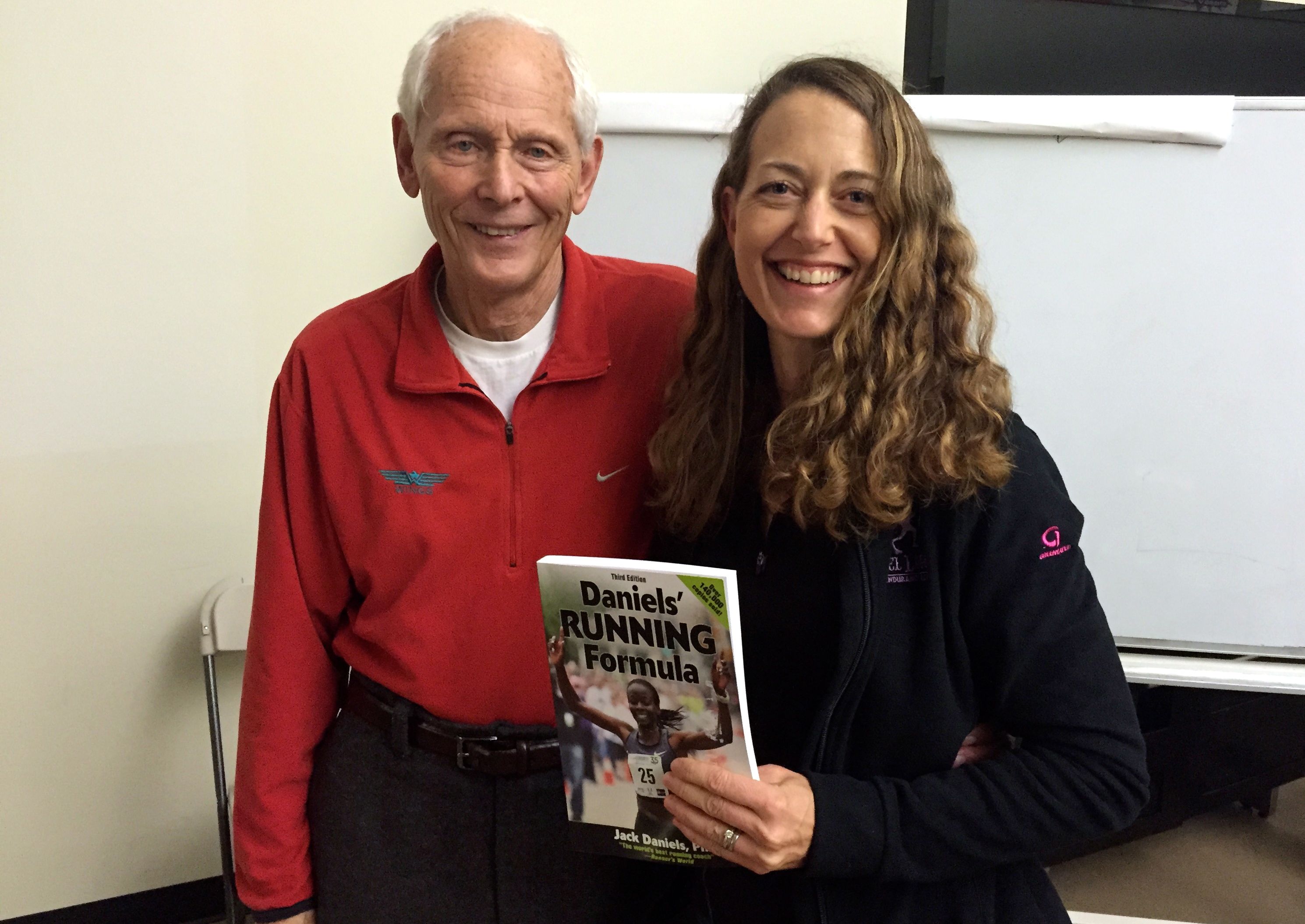
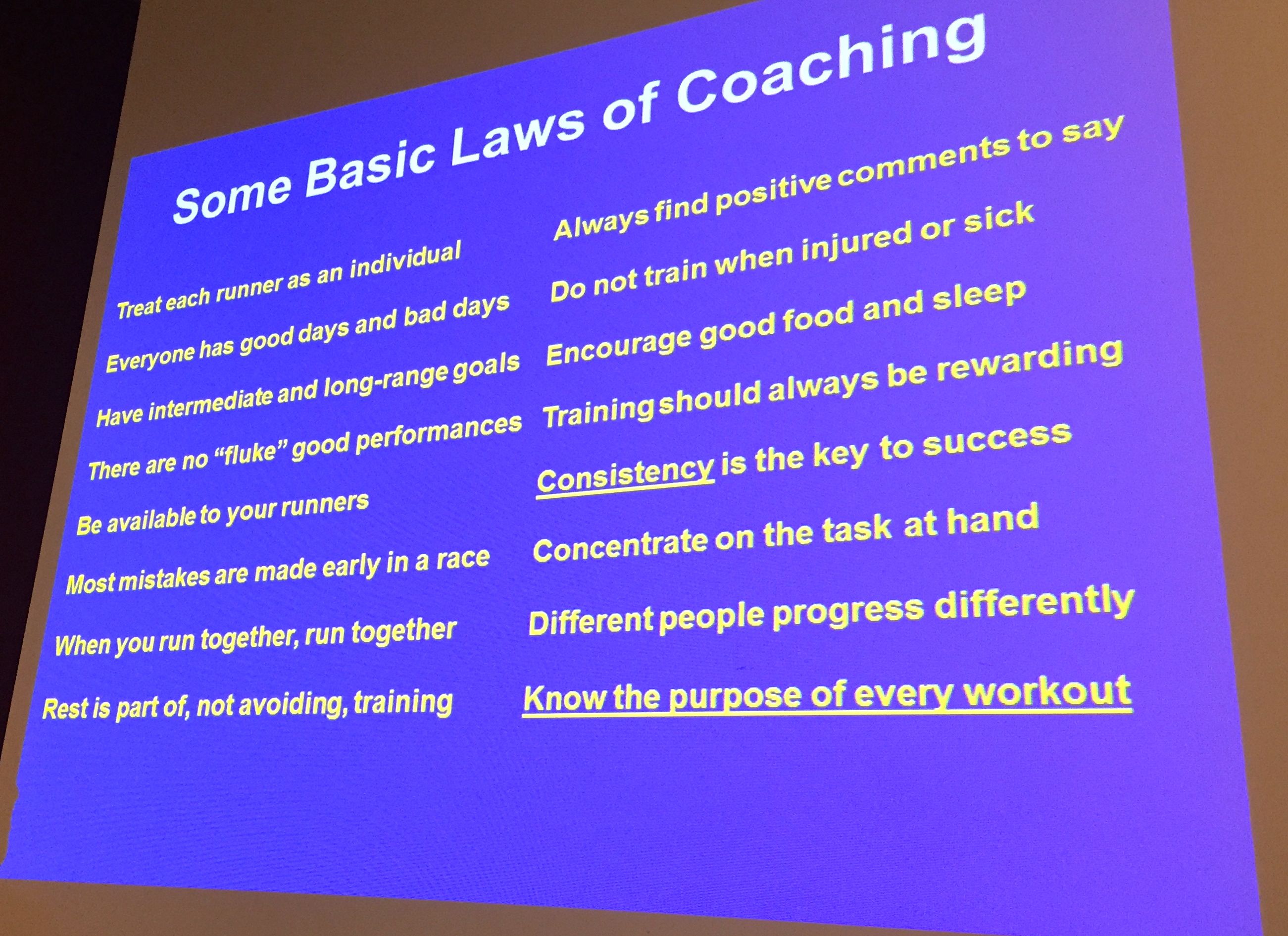
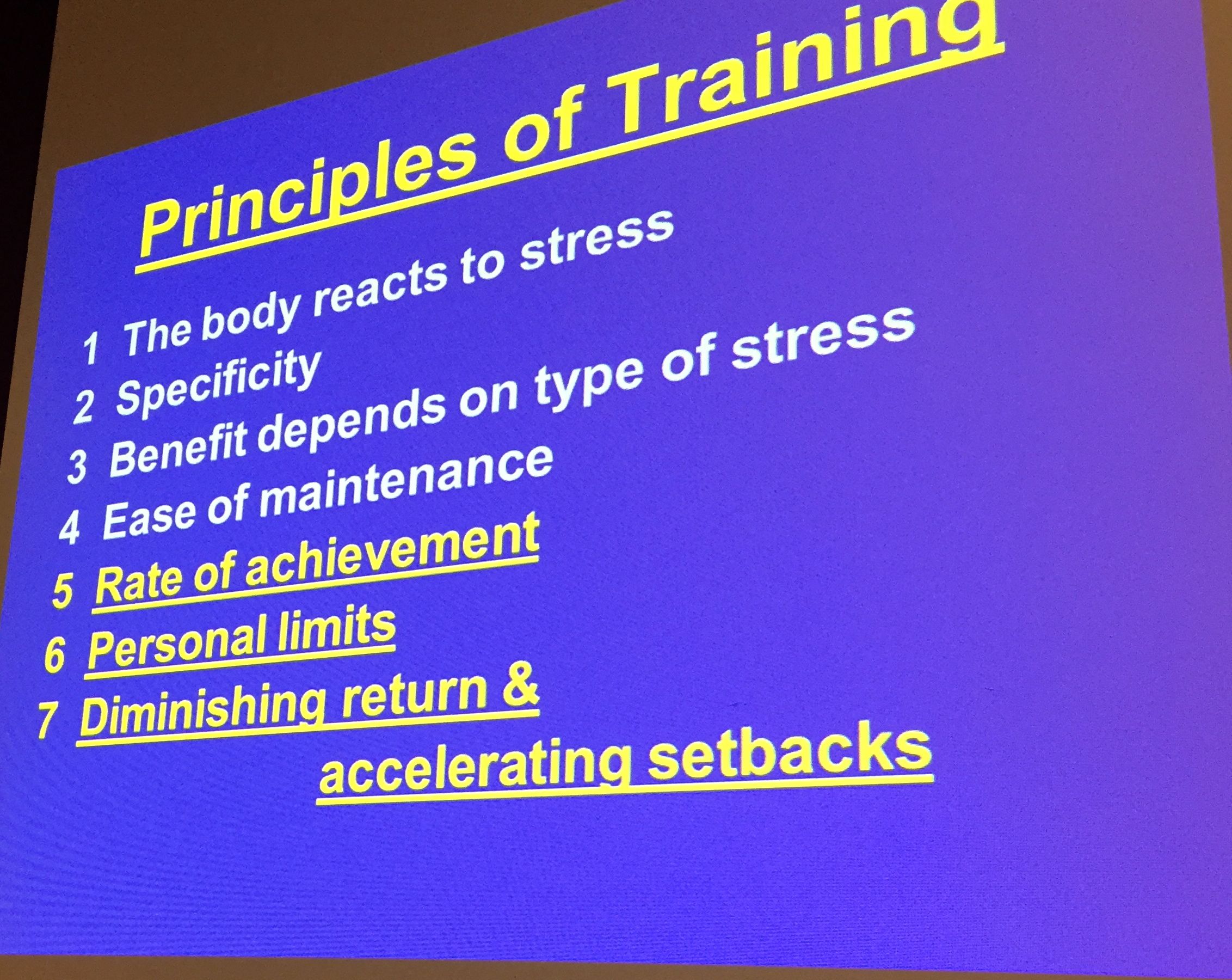
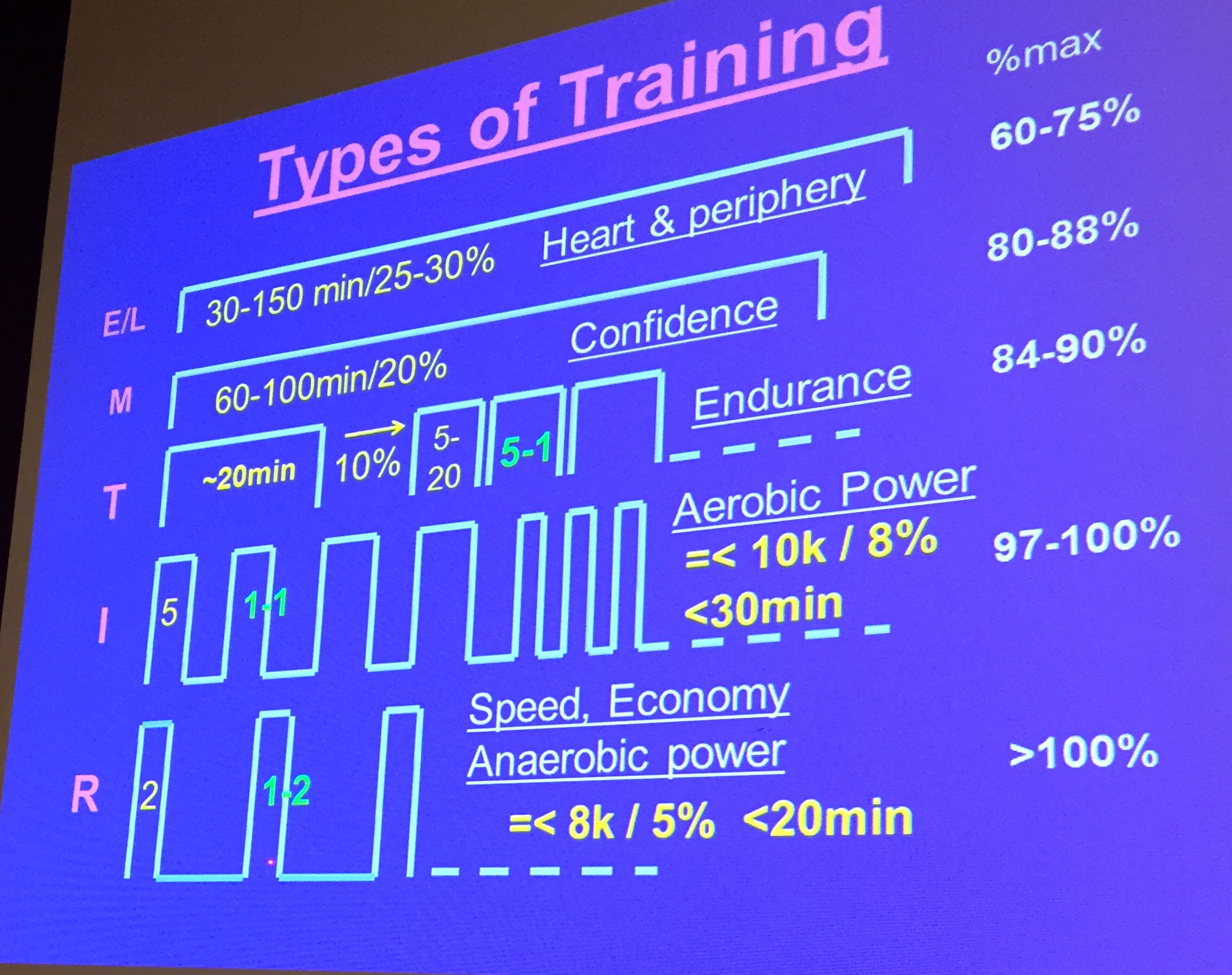
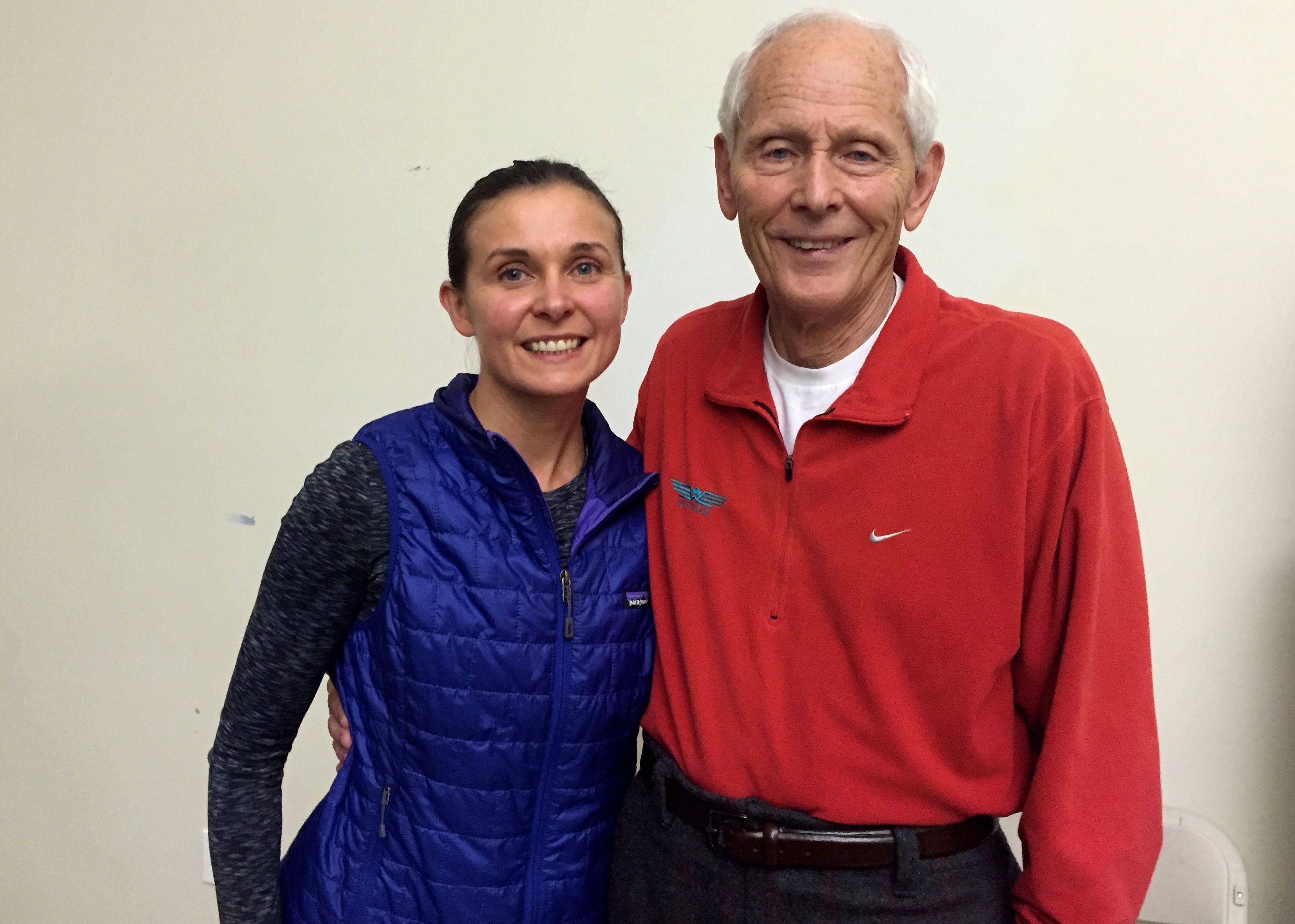
Best Wishes with your coaching endeavors! This seems to be the best time to start this sort of thing. When I started with a “coach” 3 years ago, people raised a few eyebrows at me. Many assumed I would be headed for some sort of Masters competition etc. Now, most of the eyebrow raisers talk about their coaches casually, and it seems to be the thing that people accept and want more of. For anyone reading Smith’s blog and thinking of contacting her for coaching, I’d say Go for it. My coach has gotten the best out of me.
I am a super fan of Jack Daniels formula for coaching. I like that it easily adapts to Ultra training and is not over complicated. I enjoyed the post. Cheers!
OMG! Loved the Blog post. I swear by Daniel’s Running Principles. I still use so many of them in my Crossfit Endurance run training. I love his calculations and I have used his philosophy to build other’s training plans.